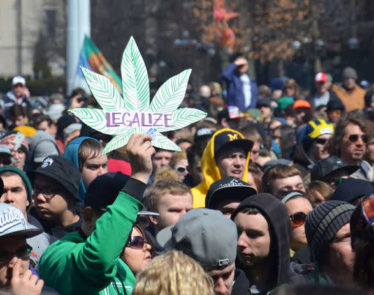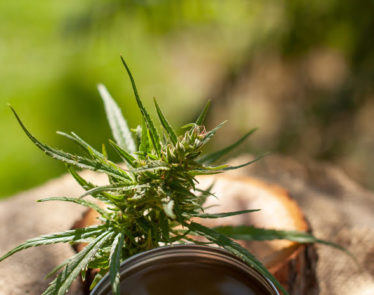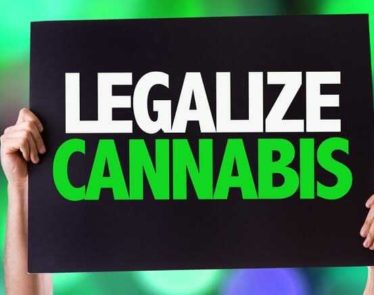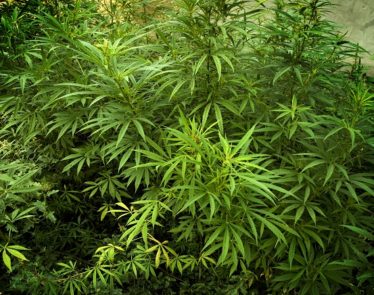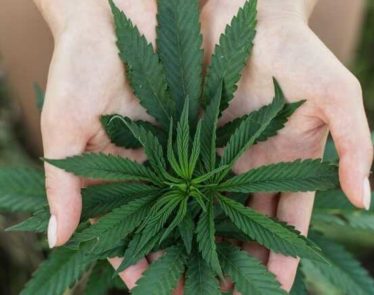
The vape crisis has been sweeping through the US in recent weeks and months, with nearly 1,500 hospitalizations and 33 reported deaths so far. State regulators have been scampering to get to the bottom of the mysterious lung illness while trying to minimalize future effects. On a federal level, the Trump administration has banned flavored e-cigarettes but has left it to state regulators to decide how they will react to the crisis.
The Centers for Disease Control and Prevention and the Food and Drug Administration are the two bodies at the forefront of investigating the vape crisis, and they're still scratching their collective heads as to what is the cause. The current line of investigation points to a chemical in illicit "street vapes," which causes a chemical reaction in the lungs leading to symptoms such as coughing, shortness of breath, or chest pains.
The vapes crisis has been most prevalent in states where cannabis is legal on either a recreational or medical level, although it is still unknown if cannabis is a factor in contributing to the potentially deadly mystery lung ailment. States have taken a number of approaches on how to deal with the vape crisis, from emergency blanket bans on all kinds of vapes to more specific restrictions on certain additives. Here we'll look at how regulators in eight of the largest cannabis legal states have reacted to the crisis.
Florida
Medicinal cannabis was legalized in the Sunshine State back in 2016, and despite campaign groups pushing for full legalization, recreational use remains outlawed. So far, the vape crisis has sadly claimed the lives of two Floridians, prompting the state's Attorney General to launch an investigation to examine marketing practices and online sale strategies of retailers and out-of-state distributors. The AG's office released a list of potentially liable culprits, which included the company at the very heart of the crisis, Juul.
New York
New York is another state where cannabis is legal for medicinal but not recreational use, although possession has been decriminalized. There have been over 100 reports of vape-related illnesses in New York, with a 17-year old Bronx teenager sadly becoming the youngest victim of the vape crisis, according to state health officials. NY banned all nicotine flavored vapes last month, and Governor Andrew Cuomo attempted to implement emergency executive action in order to ban all flavored vapes, but this was blocked last week by an Albany appellate court.
Colorado
Colorado has always been a trailblazer state in terms of cannabis legislation, and it is once again at the forefront of drug policy in the US. The state's Marijuana Enforcement Division will ban three substances, including vitamin E acetate, from January 1, while also launching an educational campaign against teen vaping. Colorado has the highest teen nicotine use rates in the country, and so the benefits of this campaign are clear. No bans on vapes have been issued, with officials choosing instead to focus their efforts on finding an actual cause for the crisis.
>> Cresco Labs Stock Gains as Origin House Deal Nears Completion
Washington
Cannabis is also fully legal in Washington, and THC vapes are widely available throughout medical and recreational dispensaries. However, last week Governor Jay Inslee issued a 120-day ban on all flavored vaping products, including THC vapes. Washington's State Board of Health is currently working on new resolutions regarding the sale of vape products, which should be implemented by the time Inslee's ban expires. So far, 15 illnesses have been reported, although the vape crisis has not turned up any fatalities in Washington as of yet.
California
California has been particularly rigorous in its reaction to the vape crisis. San Francisco became the first major city to ban the sale of all e-cigarette related products when it did so back in June, while Governor Gavin Newsom set aside $20 million USD for educational awareness programs last month. A tip-off to California's Bureau of Cannabis Control led to the discovery of 7,000 cannabis cartridges that had failed State toxic tests at a premise belonging to a legal cannabis firm earlier this month. The cartridges were believed to be moving onto the black market.
Oregon
Oregon, another state with fully legal cannabis, recently announced a six-month ban on all flavored vapes and cannabis vaping products, but this was held up by an appeals court. Governor Kate Brown has also moved to establish a Vaping Public Health Workgroup, which will focus on product labeling and ingredient testing. According to state officials, 11 people have been hospitalized as a result of the vape crisis, with two deaths being reported. One of these fatalities has been identified as directly as a result of a THC vape purchased from a legal dispensary.
Michigan
Governor Gretchen Whitmer ordered an emergency ban on flavored nicotine products on October 2, but this was immediately challenged in court and subsequently halted earlier this week. Whitmer has said she will appeal the ruling to the Supreme Court, but for now, vapes are still available in Michigan. Medicinal marijuana is legal in Michigan, and recreational THC will go on sale on January 1. So far, the vape crisis has led to 30 hospitalizations and one death in Michigan.
Massachusetts
Massachusetts Governor Charlie Baker issued a four-month emergency ban on all vaping products, which was unsuccessfully challenged in a federal court by several prominent vaping companies. While a parallel case at a state level is still ongoing, the ban, which has overwhelming public support, stands for another three months. Recreational marijuana was legalized in Massachusetts earlier this year, meaning the vape crisis has hit the state pretty hard. So far, 147 hospitalizations have been reported, along with one death.
While the cause of the vape crisis still remains unknown, and with an end to the hysteria nowhere in site, there is a curious battle brewing between state regulators and vape producers. While regulators believe it is their duty and right to protect their constitutions with the implementation of restrictions and bans, vape companies are calling the crisis an "economic disaster" and bringing challenges to the courtroom. How do you see it playing out?
Featured Image: DepositPhotos © Annems







